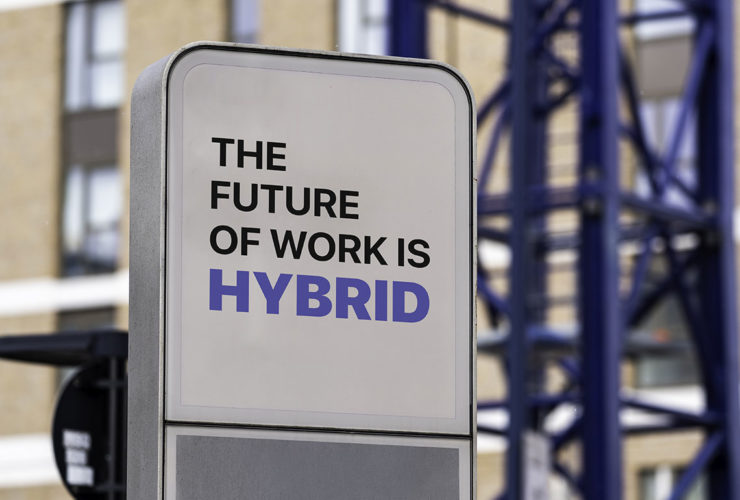If you’re an IT manager, when it comes time to make new hires, you likely want more than anything else: a clone.
After all, while hiring, you still have to meet work and project deadlines and manage your teams—and perform all of the other tasks that more than fill up your workday. It sure would be nice to have another you to handle the extra workload hiring takes (often 30%), so you wouldn’t have more stress and less time to spend with family and friends.
The last thing you want, meanwhile, is to waste your time interviewing unsuitable candidates. That means you need recruiters to consistently deliver quality candidates, which in turn means they need to use an effective candidate screening process. As we will see, the human factor—live technical interviews with qualified technical interviewers with relevant experience—is a must for effective candidate screening.
The Screening Automation Trend
The importance of the human factor seemingly flies in the face of one of the biggest trends in recruiting’s digital transformation – automation of candidate screening. Bullhorn’s Top Staffing and Recruiting Trends for 2020 report found “a major variance in the interest level (26%) in digital transformation depending on company size and role.”
See how eTeki had a pulse on the business drivers and satisfaction factors associated with decoupling the expensive, yet essential, the human-centric step of the hiring process. Their solution provided elastic interview capacity that’s transformed how India and the rest of the world hire IT, teams.
It’s easy to see the motivation for automation: speed. As the LinkedIn report makes clear, recruiters are under pressure to deliver more candidates in the same or less time. And with today’s computerized screening tools (such as personality and skills assessments) being smarter and more effective than ever at filtering out weak candidates, we agree that it makes complete sense to use them.
The problem is, these tools can’t—and likely never will be able to—filter candidates at the level IT hiring managers demand. To achieve that level of candidate screening, prior to delivery to hiring managers, candidates who’ve advanced through automated screening must go through live, rigorous technical interviews with trained technical interviewers who have relevant technical experience. In fact, these technical interviewers, in a way, act as the clones that IT hiring managers are seeking, asking tough, probing questions and evaluating answers as the hiring managers would.
5 Reasons Live Technical Interviews Are Essential
Live, rigorous technical interviews provide five benefits that make them essential for quality candidate screening.
- You learn whether candidates have the relevant experience to succeed at a given job. Computer-based tests can evaluate candidates’ high-level competency. Screening challenges, such as coding exercises, meanwhile, can show whether candidates can do the work. But only live technical interviews reveal details about candidates’ true levels of experience with key tasks, challenges, tools, etc.—giving a far more complete picture of how successful they are likely to be at given roles. The reason: interviewers understand the job requirements and how the skill or tool is used to fulfill a specific responsibility. This gives them a keen ability to probe candidates about their key job-relevant experience in ways that computerized tools simply can’t (such as through follow-up and clarification questions based on candidates’ answers to initial questions).
- You learn about how much supervision candidates would likely need. Learning about candidates’ job-relevant experience is an important indicator of how much managerial supervision they are likely to require. For example, if screening shows that one candidate is technically competent but has minimal experience, that candidate can probably handle the task but would likely require close supervision and additional training. Meanwhile, if a second competent candidate has lots of experience, that person would only require light supervision. Clearly, it would be easiest on a hiring manager to hire the second candidate. Knowing the amount of supervision likely to be needed could even impact whether to deliver one or both candidates.
- You learn about candidates’ suitability for virtual teams. More and more teams today are virtual—89% of respondents to a 2018 survey reported being members of virtual teams. Virtual teams create leadership, communication, cultural and skills challenges, and it’s important that members be able to do their work with a minimal amount of handholding. As a result, it’s important that recruiters deliver candidates with the necessary experience, which is best revealed by live technical interviews.
- You learn about candidates’ relevant problem-solving experience and capabilities. While tests can evaluate problem-solving ability, learning how candidates solved real-life challenges is far more valuable for evaluating how they are likely to deal with future challenges. In technical interviews, interviewers can probe candidates about instances where best-laid plans went awry, to learn how candidates solved specific types of problems. This will reveal whether candidates merely have knowledge about relevant challenges, of if they have experience actually solving them.
- You learn a variety of other candidate information that could impact whether candidates should be delivered. Live video interviews are revealing in other, miscellaneous ways that computer-based tests simply aren’t, and the insights gleaned can be valuable for candidate delivery decisions. Truthfulness, or lack thereof, is one example. Sometimes candidates use odd body language and provide other non-verbal cues—such as not giving eye contact—that are signs of embellishment or lying. Some candidates even use proxies for screening tests, challenges and technical interviews. With the latter, candidates often get caught because of situational factors, such as audio feedback caused by multiple audio inputs in the room.
Keep IT Hiring Managers Happy
For recruiters, it’s critical to keep IT hiring managers happy—which is why combining quick and quality candidate delivery is important. Today’s automated candidate screening tools are terrific, but using technical interviews at the end of the screening process is essential for delivering the quality that hiring managers demand. Fortunately, technical interviews using on-demand freelance interviewers can be conducted in 24 hours or less, meaning there’s no need to sacrifice speed.
In other words, the end result of using technical interviews properly is exactly what recruiters want: happier IT hiring managers. Not only are the hiring managers able to spend less time interviewing unsuitable candidates, and more time managing their teams, working on critical projects, and with their families and friends, but they also are more likely to make better hires.
And if in doing so stronger recruiter-hiring manager relationships are built, it can make a profound difference in talent acquisition (TA) results. According to Bersin by Deloitte, “Our research found the most influential predictor of TA performance outcomes is a strong relationship between the recruiter and the hiring manager; in fact, this relationship is four times more influential than other TA performance drivers.”
photo credit: johnnytangphoto Odysseus’ Rock via photopin (license)







